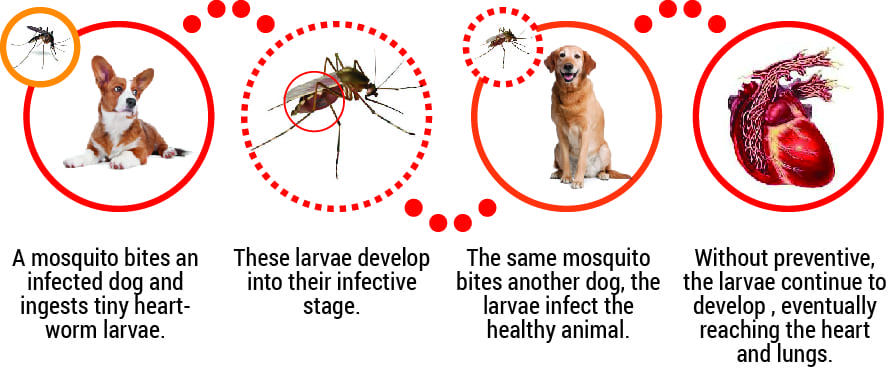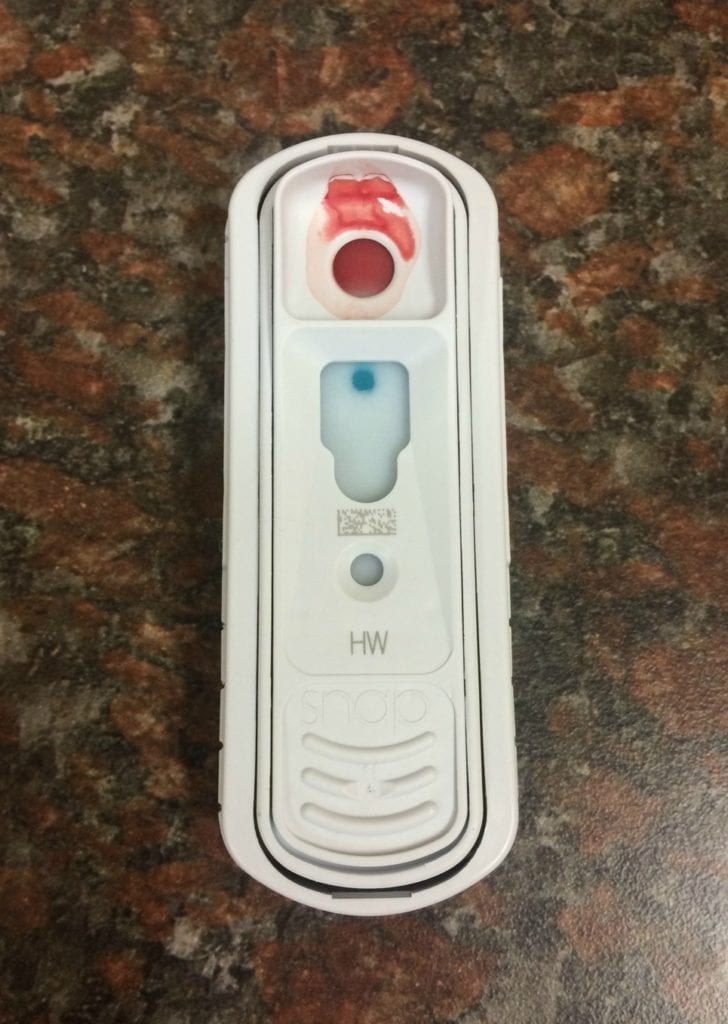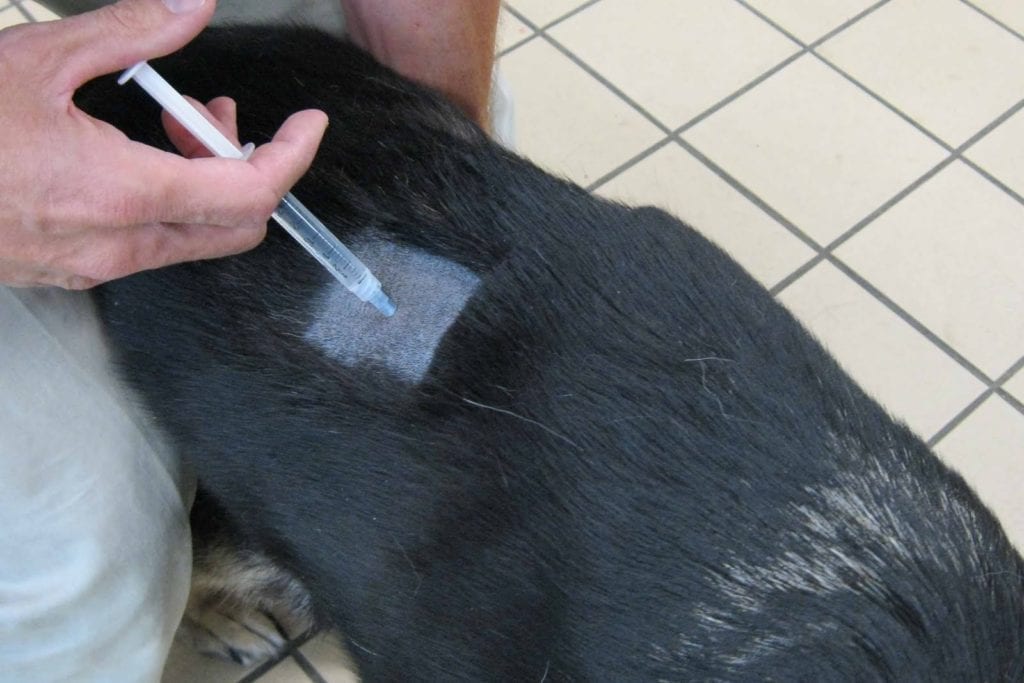Heartworm Prevention: Is It Necessary?
Heartworm Disease is a growing problem across the United States for dogs of all age, sizes, and breeds. The latest research shows that diagnosis in dogs has risen by 21% in the past 10 years. The rise in Heartworm Disease occurrence is directly related to climate changes, which is allowing for warmer weather in typically cooler locations.

What is Heartworm Disease
Heartworms are spread by mosquitos. Mosquitos bite an infected dog and bite an unprotected dog, which spreads the Heartworm larvae.
Heartworm Disease occurs when the larvae mature into adults, which live in the heart and lungs of the infected dog.

How is Heartworm Disease Diagnosed?
An annual blood test is performed by your veterinarian to test for the presence of heartworms.

Who should be tested?
All dogs should be tested for Heartworms and remain on a monthly prevention year round. Heartworms can be spread through a single mosquito and year round prevention is the only guaranteed preventative.

How are Heartworms Treated?
Heartworms are treated through fast-kill and slow-kill. Your veterinarian should determine what is best for your pet.
The fast-kill method involves a series of deep intramuscular injections over a period of 2 months. This method requires strict crate rest and limiting activity.
The slow-kill method involves an increased dose of heartworm prevention monthly until the adult heartworms live out their lifecycle. This method does not typically involve rest restrictions, however, it has been shows to allow increased damage to the heart and lungs.

Why are Preventatives Important?
Heartworm preventatives, when given properly each month, are intended to prevent the growth of Heartworm larvae into adults. The preventative medications can be given in either oral form or topically. You should discuss with your Veterinarian the appropriate choice for your pet.

Keep your pet’s heart healthy by giving Heartworm prevention on-time each time!
